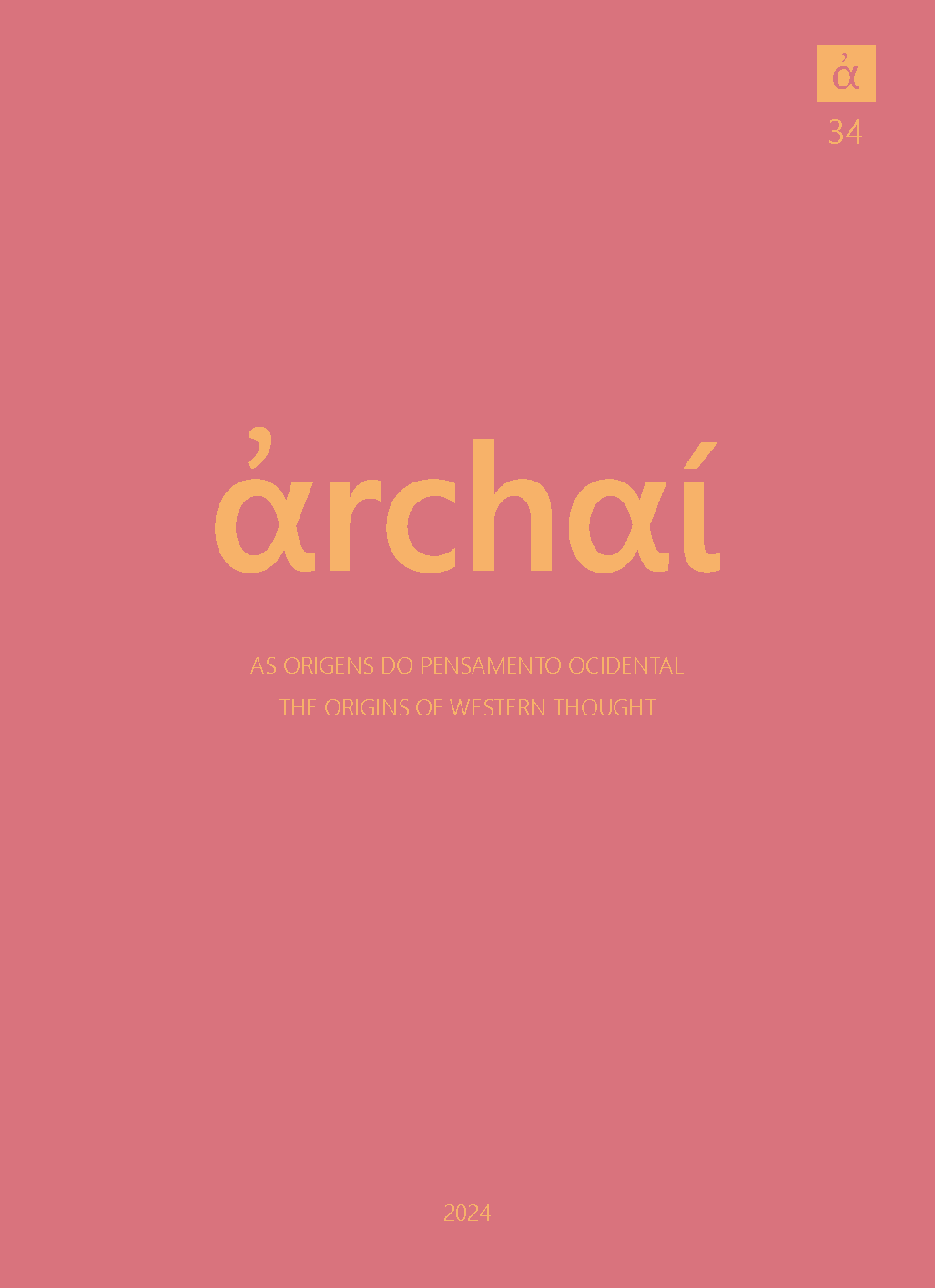Why Plato could not simply embrace Democracy? Misology and Democracy in Plato’s Thought
DOI:
https://doi.org/10.14195/1984-249X_34_29Keywords:
Plato, Democracy, Misology, Republic, PhaedoAbstract
This paper aims to look at the ancient city of Athens and some of its political challenges through the eyes of Plato. I will do this by relating two concepts that permeate Plato's political concerns: democracy and misology. Beyond the tragic event of Socrates' death at democratic hands, there is perhaps something even deeper in Plato's struggle to see democracy as something that can work, so to speak. Plato no doubt has a profoundly pessimistic view of the human being. And the city, who was traditionally supposed to educate men, is not delivering anymore (if ever). First of all, Plato clearly identifies the origin of political and social instability in the economic imbalance between πλοῦτος (richness) and πενία (poverty). Secondly, Plato's diagnosis, what his eyes are seeing, is even more perceptive and accurate. He outlines a second source of problem for democracy, one the probably resonate even more dramatically in our very present days: one that Socrates calls misology in the Phaedo: the hatred of discourses. Apart from the fact that there is a significant distance and a radical difference between the democracy of the 5th and 4th centuries, when Plato actually writes his dialogues, the most relevant question that emerges from the investigation is probably that a democracy itself is not something stable, an ontological object, not even today. And Plato was well aware of all this.
References
ARISTOPHANES. Birds and other Plays (1999) Transl. S. Halliwell Oxford: Oxford University Press.
BERTELLI, L. (2005) Platone vs. democrazia (e oligarchia). In Mario Vegetti. Commento ala Repubblica, vol. VI. Napoli: Bibliopolis.
COOPER, John M., and D. S. HUTCHINSON (1997). PLATO. Complete Works. Edited, with Introduction and Notes, by John M. Cooper. Indianapolis, IN: Hackett Publishing Company [Transl. of Republic Grube/Reeve; transl. of Gorgias].
CORNELLI, G. (2014) Socrate et Alcibiade. Plato Journal, v. 14, p. 39-51.
CORNELLI, G. & CHEVITARESE, A. (2010). Socrate e Platone tra golpe oligarchico e restaurazione democratica (404-403 a.C.)’. In Rossetti, L. & Stavru, A. Socratica 2008. Studies in Ancient Socratic Literature Bari: Levante ed.
FUKS, A. (1977) Plato and the social Question: the Problem of Poverty and Riches in the "Republic". Ancient Society, 8, pp. 49-83.
HESIOD. Theogony and Works and days (2009) Transl. M. West. Oxford: Oxford University Press, 1988.
ISOCRATES I. (2000) Transl. David Mirhady & Yun Lee Too. Austin: University of Texas Press.
LEVITSKY S. & ZIBLATT, D. (2018) How democracies die: what history reveals about our future London: Viking/Penguin Books.
MOSSÉ, C. (1962) La fin de la démocratie athénienne Paris: Presses Universitaries de France.
MUSTI, D. (1995) Demokratía: origini di un'idea Roma: Laterza.
NUSSBAUM, M. (2011) Creating Capabilities Cambridge, MA: Harvard University Press.
OSBORNE, R. (2003) Changing the Discourse. In Kathrin A. Morgan (ed). Popular tyranny: sovereignty and its discontents in ancient Greece Austin: University of Texas.
POPPER, K. (1944) The open society and its enemies Vol. 1. The spell of Plato London: Routledge (published in 1945).
SEDLEY, D. & LONG, A. (2011) Plato. Meno and Phaedo Edited by David Sedley, translated by Alex Long. Cambridge: Cambridge University Press.
DUKE. E. A.; HICKEN, W. F.; NICOLL, W. S. M.; ROBINSON, D. B.; STRACHAN, J. C. G. (1995). Oxford Classical Texts: Platonis Opera, Vol. 1: Tetralogiae I-II Oxford: Oxford University Press .
STRAUSS, L. (1964) The city and the man Chicago: University of Chicago Press.
THUCYDIDES. The Peloponnesian War (2009). Translated by Martin Hammond. Oxford: Oxford University Press.
TOLBERT ROBERTS, J. (1995) Myths of Democracy and Gender in Plato’s Republic. Thamiris, vol. 2, pp. 259-272.
VEGETTI, M. (2003a) Quindici Lezioni su Platone Torino: Einaudi.
VEGETTI, M. (2003b). Antropologias da Pleonexía: Cálicles, Trasímaco e Gláucon em Platão. Boletim do CPA Ano VIII, n.16: 9-26.
VEGETTI, M. (2009) Um Paradigma no Céu: Platão político de Aristóteles ao século XX São Paulo: Annablume.
Downloads
Published
Issue
Section
License
Copyright (c) 2024 Gabriele Cornelli

This work is licensed under a Creative Commons Attribution 4.0 International License.
Given the public access policy of the journal, the use of the published texts is free, with the obligation of recognizing the original authorship and the first publication in this journal. The authors of the published contributions are entirely and exclusively responsible for their contents.
1. The authors authorize the publication of the article in this journal.
2. The authors guarantee that the contribution is original, and take full responsibility for its content in case of impugnation by third parties.
3. The authors guarantee that the contribution is not under evaluation in another journal.
4. The authors keep the copyright and convey to the journal the right of first publication, the work being licensed under a Creative Commons Attribution License-BY.
5. The authors are allowed and stimulated to publicize and distribute their work on-line after the publication in the journal.
6. The authors of the approved works authorize the journal to distribute their content, after publication, for reproduction in content indexes, virtual libraries and similars.
7. The editors reserve the right to make adjustments to the text and to adequate the article to the editorial rules of the journal.



